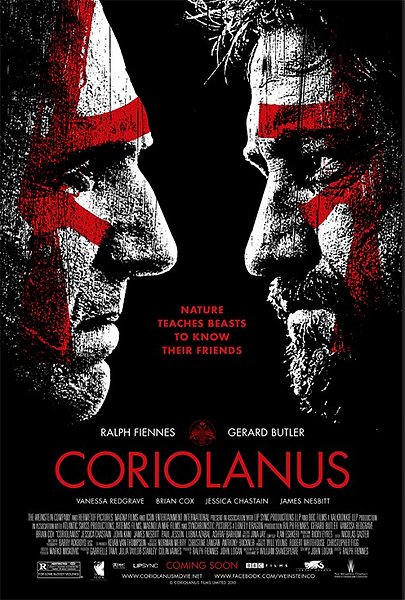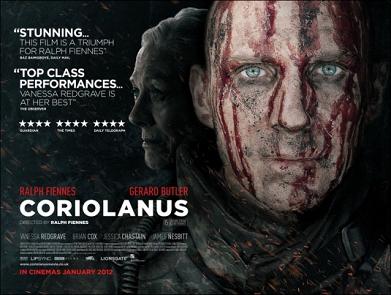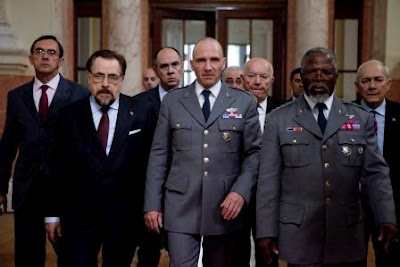
The glorification of war has been a life-long pursuit for many writers. Whether lionizing a military figure like Alexander the Great or General George S. Patton, the cult of the warrior hero has always been a safe place to anchor a story.
Yet there is great folly to be found in waging a war from which no one emerges triumphant. In 1963, Joan Littlewood created a satirical musical revue entitled Oh, What A Lovely War! which featured such popular World War I songs as "Belgium Put The Kibosh on the Kaiser," "It's A Long Way To Tipperary," "Pack Up Your Troubles In Your Old Kit Bag," 'Keep The Home Fires Burning," and "The Bells of Hell Go Ting-a-ling-a-ling." The first verse of 1917's "Oh! It's A Lovely War" reads as follows:
"Up to your waist in water, up to your eyes in slush,
Using the kind of language that makes the Sergeant blush.
Who wouldn't join the army? That's what we all inquire.
Don't we pity the poor civilians sitting beside the fire."
The following clip from 1968's Star! finds Julie Andrews (as the young Gertrude Lawrence) and a chorus of music hall girls performing the song's popular refrain:
Although I saw a performance of Littlewood's show when it reached Broadway in 1964, I was too young and naive to appreciate its satire. Last year, BlackEyed Theatre toured its production of Oh! What A Lovely War around Great Britain.
Unfortunately, war never really goes out of fashion. The San Francisco Silent Film Festival is gearing up for this spring's special screenings of Abel Gance's 1927 masterpiece, Napoleon.
* * * * * * * * * *
For decades, high school students have been introduced to the plays of William Shakespeare through study guides for Romeo and Juliet, Hamlet, Macbeth, Othello, and occasionally A Midsummer Night's Dream. No one in their right mind would have thought that the strongest way to capture a young audience's imagination might be through the lesser-known tragedy of Coriolanus (which was written early in the 17th century).

Poster art for Coriolanus
But Coriolanus has everything young students can relate to: blood and guts, hatred and destruction, a lust for power, and the ability to reflect today's gruesome political realities. Magnificently reconceived and directed by Ralph Fiennes (who stars as the brilliant military general who is lacking in political skills), this new adaptation uses Shakespeare's language in a tightly condensed screenplay by John Logan that grips the audience by the throat within the film's first 20 seconds and never lets go.
Coriolanus (Ralph Fiennes) listens to the pleas of his mother,
Volumnia (Vanessa Redgrave) in the thrilling new adaptation
of Shakespeare's Coriolanus
Fiennes (who played Coriolanus onstage in 2000) knows the character intimately and has a thorough understanding of Shakespeare's script. As he explains in the film's production notes:
"I believe that Shakespeare is in so many respects extraordinarily modern. Taking aside the question of the language, what's happening in Shakespeare's stories is always relevant -- they're active as stories. Whether it's a comedy about love; or it's about a young student who can't make up his mind about what he should do about the death of his father; or it's a tragedy about a man who's constantly killing to get his way to the top: everything Shakespeare describes is going on right now. Coriolanus, particularly, is always going to be pertinent because the power plays of politics will always be with us. Structurally, and in terms of vocabulary, there is an expressiveness and athleticism in the original that, I would argue, you couldn't achieve in modern speech. It's a difficult part to play in the theater because his rage erupts many times and it's challenging, vocally, to find the variation within the rage. But on film, I believed the interior life of Coriolanus could be explored and what is not said could be as meaningful as a speech."

Poster art for Coriolanus
"With Coriolanus, Shakespeare takes a really hard-ass man who despises the people and makes him the protagonist (which I think is thrilling, dramatically). Coriolanus comes into the opening of the story and basically tells the people to go fuck themselves. I think we in the audience decide we don't like this guy based on that simple fact. But then the audience experiences him as a soldier, an extremely brave, almost crazy kind of soldier. They come to see that he has a kind of integrity which is manipulated and destroyed by the world around him, and by his own arrogance and pride. Coriolanus wants recognition and doesn't want it at the same time."
Menenius (Brian Cox), Coriolanus (Ralph Fiennes), and General
Cominius (John Kani) stride through the halls of power in Coriolanus
Shot in and around Belgrade, Serbia, Coriolanus (in which Fiennes makes a smashing debut as a film director) has been updated to modern times. Rather than the Rome that is romanticized by the tourism industry, the film's depiction of Rome resembles any modern city in which there is a dangerous gap between the wealthy and the poor. Cell phones, computer monitors, and graffiti are everywhere; television "pundits" are often seen delivering text that might otherwise have been spoken by minor characters in Shakespeare's tragedy.
Gerard Butler costars as Tullus Aufidius,
the bitter enemy of Coriolanus
To his credit, Fiennes has assembled an astonishingly strong supporting cast that features Vanessa Redgrave as his mother Volumnia, Jessica Chastain as his wife Virgilia, Gerard Butler as his sworn enemy, Tullus Aufidius, Paul Jesson as Brutus, and Brian Cox as the politician, Menenius. The use of Serbian locations to represent a war-torn capital works brilliantly.
Over the years, I've seen many of Shakespeare's plays (and operas based on Shakespeare's plays) updated to different historical periods in a director's attempt to make these classics more relevant to modern audiences. Simply stated, it doesn't get any better than Fiennes's film adaptation of Coriolanus. Here's the trailer:
To read more of George Heymont go to My Cultural Landscape



